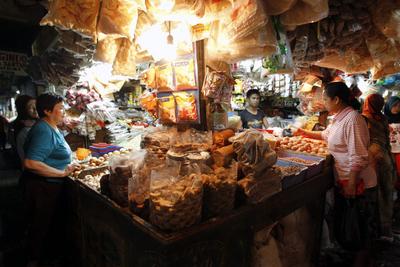Does the average Indonesian really have cause to be so optimistic?
Commodity prices have been falling recently, which is rarely good news for Indonesia’s resource-driven economy. Exports have been down, along with other commodity-based economies around the world. Commodities account for 60 per cent of Indonesian exports, with most of this coming from coal. Both Chinese demand and prices for coal have declined recently, with weak manufacturing Purchasing Managers’ Index numbers expected, which would be expected to have a significant negative impact.
It seems though that middle-class spending power is going a long way in compensating for this.
The Financial Times has reported that the market for some of the most exclusive apartments on the waterfront of cities such as Balikpapan is very healthy indeed. What is perhaps more surprising is that buyers are locals, rather than the foreigners that often purchase swathes of real estate. Around a third directly earn their income from the Indonesian coal industry.
What this means is that falling commodity prices don’t appear to be having the effect on local businesses that one might expect. Perhaps this is why consumer confidence is so strong — consumers are not ill-informed about the economic situation; rather, they are genuinely content, with the fate of the currency a distant concern.
Sell-offs in emerging markets hit the news almost daily, and Indonesia is not exempt from that, usually caused by uncertainty in economic stability and in recent months, directly by the Federal Reserve’s action to reduce the amount of new money created under its ‘QE’ programme. While domestic demand may be keeping things ticking over, there may well be an ingenious way in which the world’s largest Muslim nation can prevent itself from being over-reliant on external investment.
The pilgrimage to Mecca is a major event for millions of Muslims around the world, and Indonesians pay a deposit to the Ministry of Religious Affairs in order to make the trip. The total funds received by the Ministry in deposits for the Hajj stand at well over US$5 billion, earning interest between 2004 and 2013 of US$200 million. With a waiting list of more than a decade, there are no signs of the numbers decreasing.
Sharia bonds have become big business in many countries, and the department in charge of holding the deposits for the Hajj has already begun investing in bonds issued by the government. This, or possible investment in commodities such as gold and other precious metals, could signal the start of a boom in Indonesia’s Islamic finance market, which could drastically reduce reliance on foreign capital.
It’s early days: Indonesia’s foreign debt stands at around a quarter of a trillion dollars, but with Hajj funds predicted to increase threefold over the course of the next ten years, and local business seemingly secure, the average consumer may well have more to be optimistic about than economists might suggest.
Nigel West is a financial trading journalist specialising in FX and commodities.

